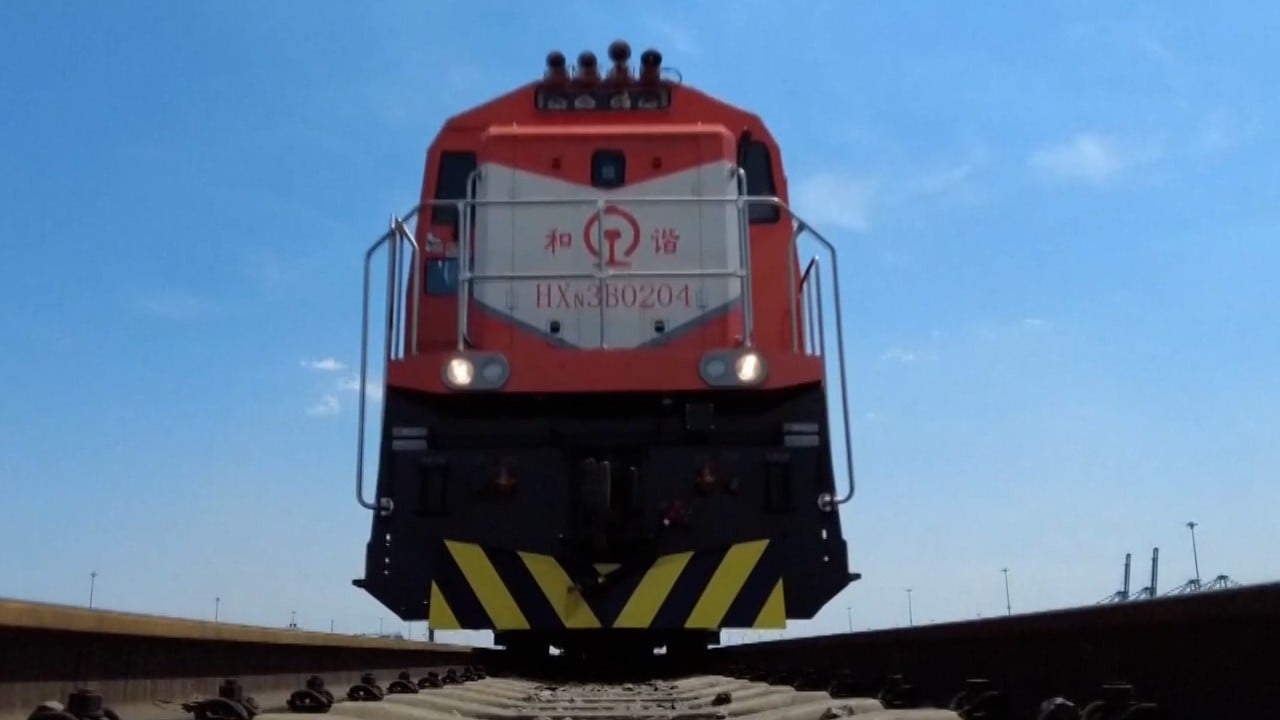Will China’s rail link between Xinjiang, Kyrgyzstan and Uzbekistan change the great power rivalry in Central Asia?
- 25 years after the plan was hatched, a 523km (325-mile) rail line between China, Kyrgyzstan and Uzbekistan will begin construction next year, Kyrgyz President Sadyr Japarov says
- Analysts say railway will bring enormous economic benefits, but could also stoke geopolitical competition between China, Russia and the United States

Lying in China’s far west, between one of the world’s highest mountain ranges and largest deserts, the city of Kashgar has long been touted as the “Shenzhen of the West” – referring to the country’s most famous boom town, on the border of Hong Kong.
Bordered by Pakistan, Kyrgyzstan, Tajikistan and Afghanistan, the city was once an important trading hub on the Silk Road. But recent attempts to revive its fortunes, including by designating it a “special economic zone” 12 years ago, have come to little.
But after years out of the limelight, discussion about its development has reappeared on the Chinese internet over the past week, following an announcement about the imminent launch of China-Kyrgyzstan-Uzbekistan (CKU) railway – a 523km (325-mile) route connecting the three countries that starts from Kashgar.
Once built, the railway will bring enormous economic opportunities to the region, linking Europe, the Middle East and eastern China, authorities say.
But its slow road to development reflects a number of challenges, including Russian opposition to China’s expanding influence in Central Asia and messy internal politics in Kyrgyzstan.

